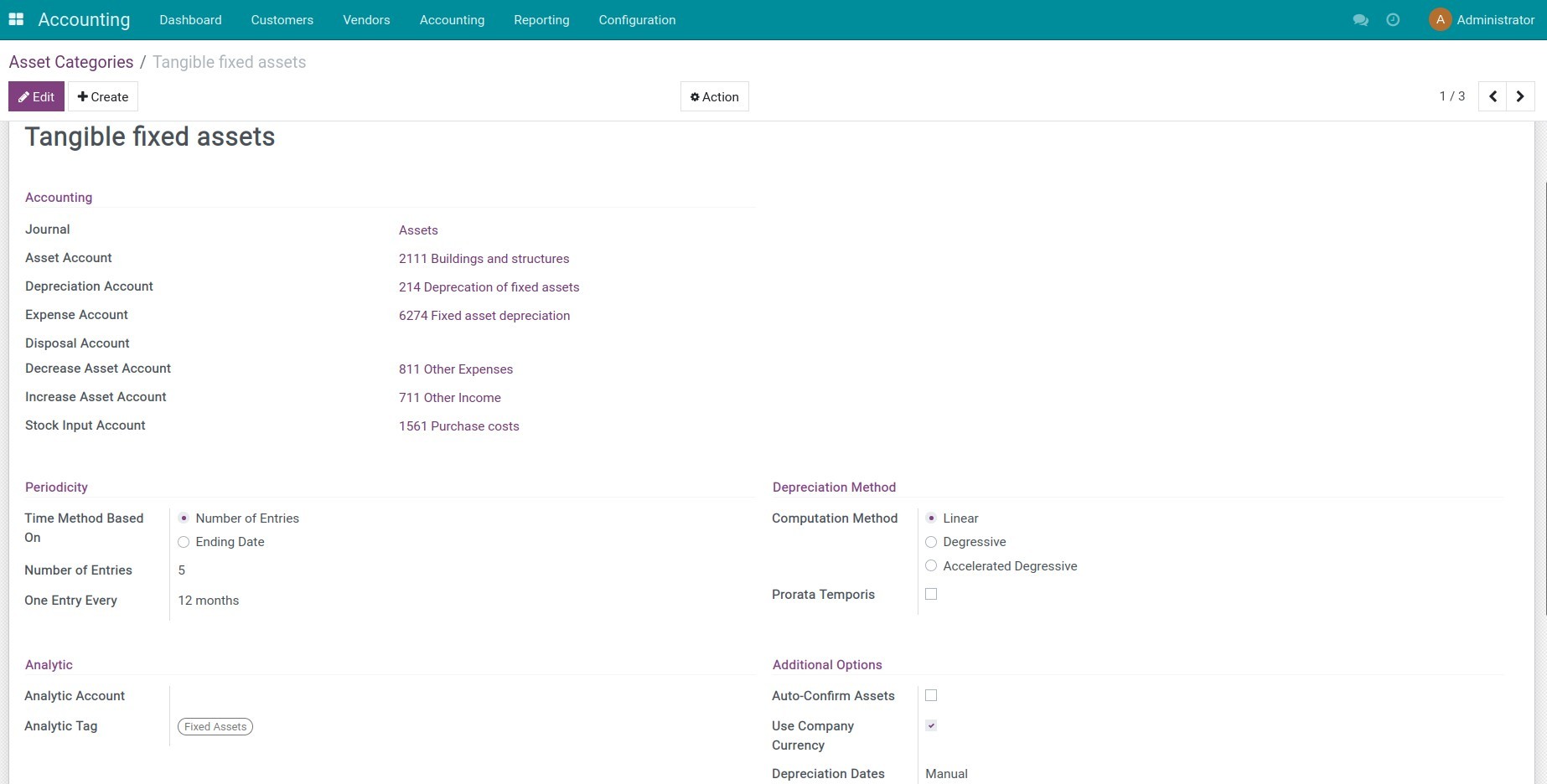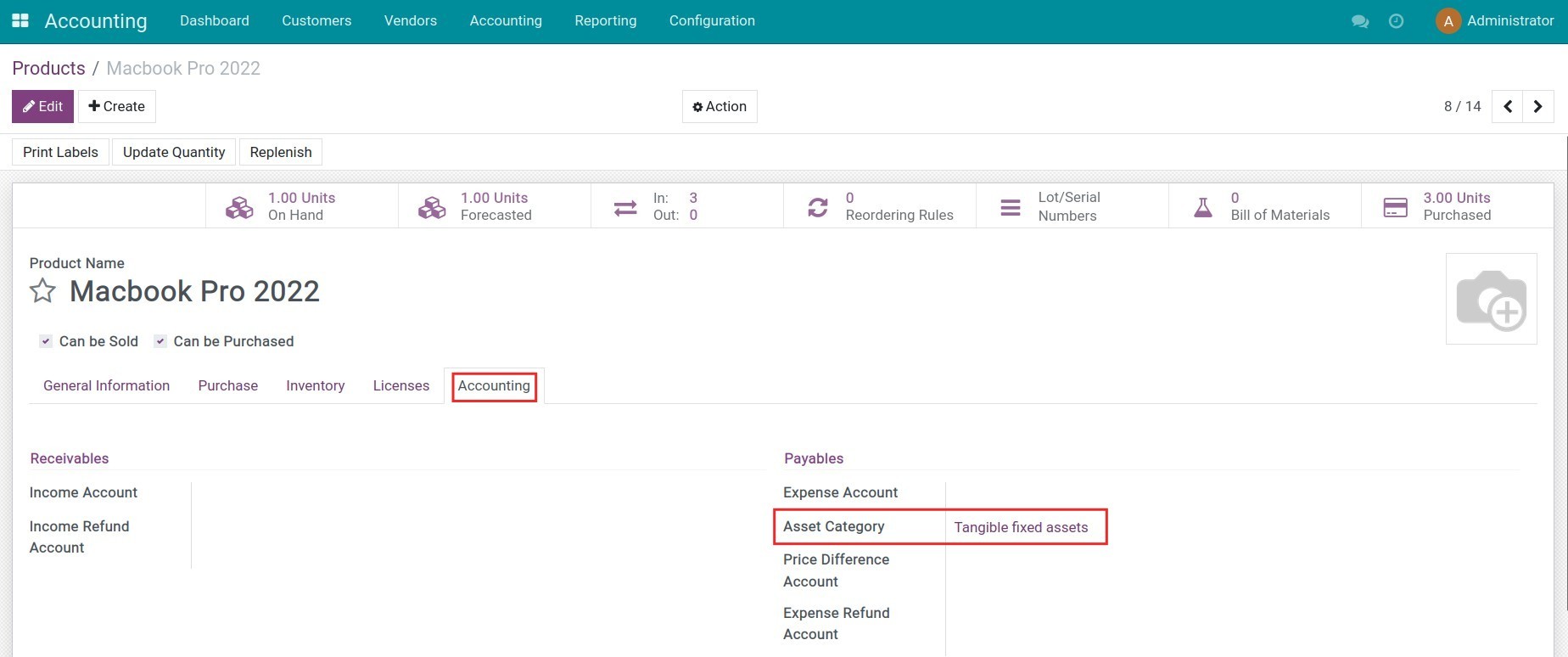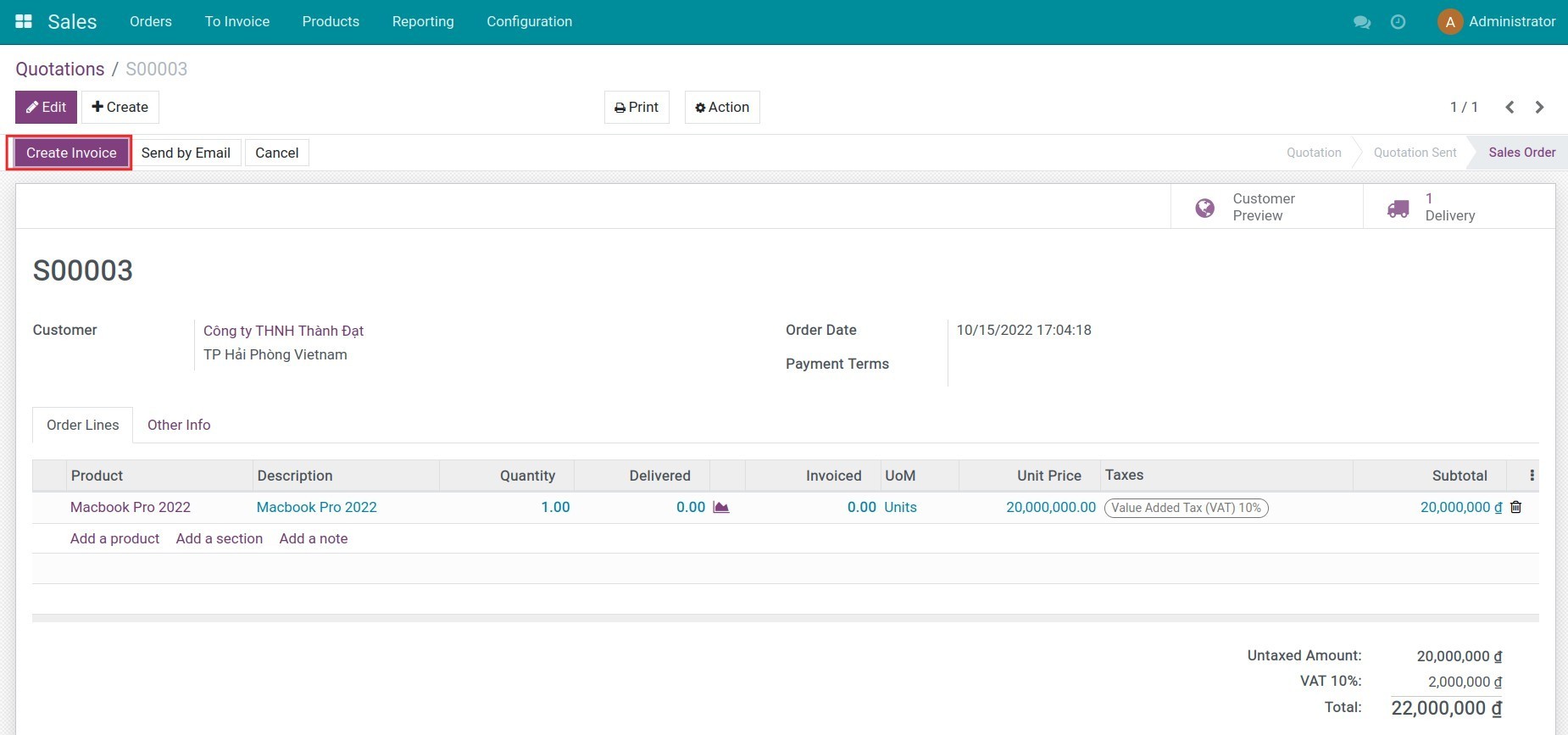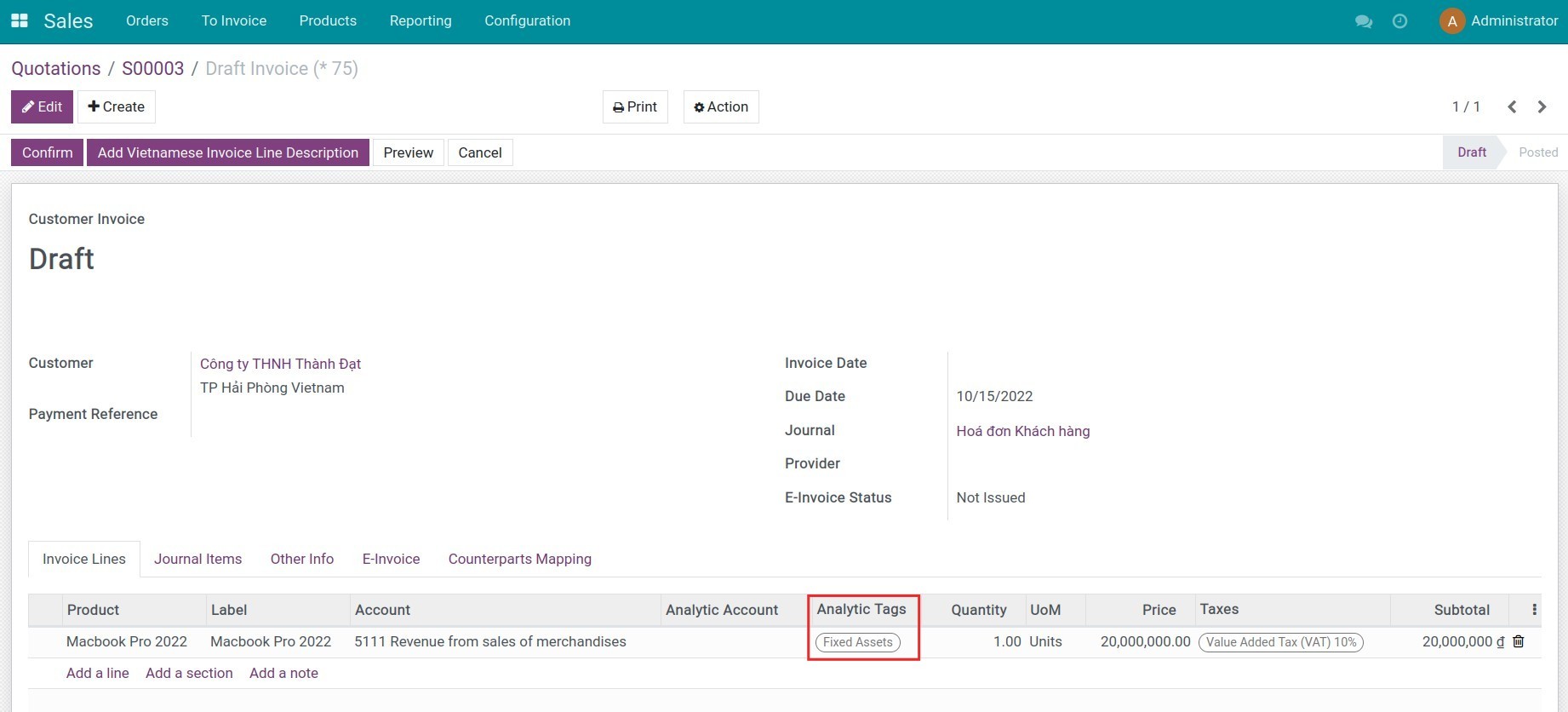Demo video: Vietnam - Account Assets Sales
Problem
When liquidating asset, businesses create invoices to record in the system and send to buyers.
However, on the invoice view, the system cannot automatically fill the analytic tag for the product to be sold. (The analytic tag was configured on the asset category. For example: tangible fixed assets, trading securities, etc.).
At this point, users have to manually fill the product's analytic tag when creating invoices or make additional edits later to complete financial statements. This can cause omission, confusion or unnecessary waste of time in the accounting process.
Solution
Module l10n_vn_viin_account_asset_sale provides the feature to fill automatically the analytic tag configured on asset categories set on the product when creating customer invoices from the sales order.
The ERP system will summarize the data according to the analytic tags to display on the financial statements. Therefore, accountants save time and increase accuracy in the accounting process.
Editions Supported
- Community Edition
- Enterprise Edition
Installation
- Navigate to Apps.
- Search with keyword l10n_vn_viin_account_asset_sale.
- Press Install.
Instruction
Instruction video: Vietnam - Account Assets Sales
1. Create asset category and link with a product
Navigate to Accounting > Configuration > Asset Categories, press Create to create a new asset category.

On the product view, select the suitable asset category for the product in the Accounting tab.

2. Create an invoice for the asset sales order
Create a sales order. On the purchase order view, press Create Invoice to create a customer invoice. On the invoice line, the analytic tags configured on the asset category will be automatically recognized and displayed accordingly.


This software and associated files (the "Software") may only be
used
(executed, modified, executed after modifications) if you have
purchased a
valid license from the authors, typically via Odoo Apps,
or if you
have
received a written agreement from the authors of the
Software (see the
COPYRIGHT file).
You may develop Odoo modules that use the Software as a library
(typically
by depending on it, importing it and using its
resources), but
without
copying any source code or material from the
Software. You may distribute
those modules under the license of your
choice, provided that this
license
is compatible with the terms of
the Odoo Proprietary License (For
example:
LGPL, MIT, or proprietary
licenses similar to this one).
It is forbidden to publish, distribute, sublicense, or sell
copies of the
Software or modified copies of the Software.
The above copyright notice and this permission notice must be
included in
all copies or substantial portions of the Software.
THE SOFTWARE IS PROVIDED "AS IS", WITHOUT WARRANTY OF ANY KIND,
EXPRESS OR
IMPLIED, INCLUDING BUT NOT LIMITED TO THE WARRANTIES OF
MERCHANTABILITY,
FITNESS FOR A PARTICULAR PURPOSE AND
NONINFRINGEMENT. IN NO EVENT
SHALL THE
AUTHORS OR COPYRIGHT HOLDERS
BE LIABLE FOR ANY CLAIM, DAMAGES OR OTHER
LIABILITY, WHETHER IN AN
ACTION OF CONTRACT, TORT OR OTHERWISE,
ARISING
FROM, OUT OF OR IN
CONNECTION WITH THE SOFTWARE OR THE USE OR OTHER
DEALINGS IN THE
SOFTWARE.





